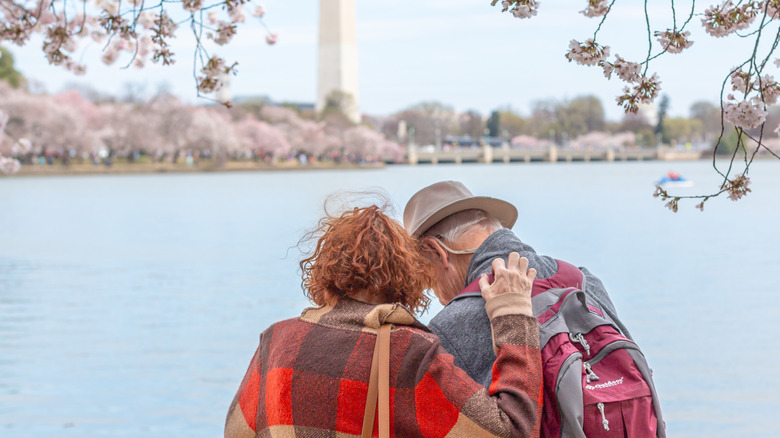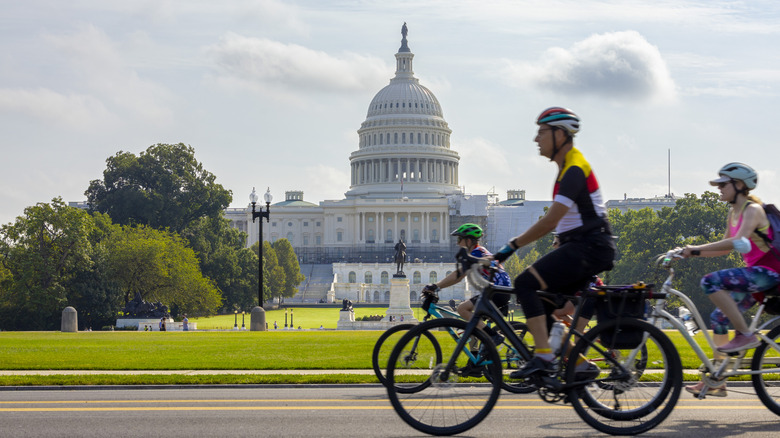This Bustling East Coast American City May Have Cracked The Code To Extreme Longevity
While Washington, D.C. is known for its historic monuments and the largest natural history museum collection in the world, it's also one of the healthiest cities in the country — and possibly a blueprint for longevity. According to a study done by research firm BestPlaces in collaboration with medical manufacturer, Medtronic, D.C. ranked as the top metropolitan area where the first person to reach 150 years old could live. In other words, D.C. has a promising outlook for long lifespans, thanks to the mix of its residents' fitness habits, access to healthcare, and strong community infrastructure.
The factors used to predict longevity by BestPlaces and Medtronic were social capital (family unity and community organizations, for example), health resources, community wellness, and eating habits. The study also accounted for gender and average life expectancy. It found that some of the strongest influences for longer life expectancy are social connections and wellness indicators, like physical activity and diet. Wellness figures aren't a surprising factor, and they support D.C.'s case — across the 50 states and D.C., it's one of two places that has an obesity rate under 25% (the other being Colorado), according to the Centers for Disease Control and Prevention. The adult smoking rate is also low at 10.6%, according to the American Lung Association.
What might be more unexpected is the importance of social connections for healthy and long living. A research report published by the Public Library of Medicine found that people with stronger social connections had 50% better chances of surviving longer. In this regard, the city also excels with its many public events, spaces designed for building connections, and activities for adults on vacation in D.C.
How Washington D.C. keeps its residents thriving
Washington, D.C. is a city designed for movement and fitness. It's super walkable, and it has over 160 miles of bike paths, according to goDCgo, with 7.5 miles of those being along the scenic, car-free Great American Rail Trail. For travelers, you can easily take up D.C.'s biking call by renting a bike through its affordable Capital Bikeshare program. The city has tons of green space for those who prefer to walk from the beautiful garden paths of the National Arboretum to the seven-mile Capital Crescent Trail that connects to Bethesda, Maryland.
On the food front, healthy eating is the standard in D.C. It's packed with health-forward restaurants and farmers markets. The FreshFarm Dupont Circle Market is a local favorite, open every Sunday year-round. "We were amazed at the quality and quantity of fresh farm produce, meats, cheeses etc that were offered," said one visitor on TripAdvisor. Meanwhile, Fruitive is a popular fast-casual health-focused dining spot with a few locations around D.C. For something more upscale, try the Michelin Guide-recommended Mediterranean restaurant, Zaytinya, which has lots of vegetarian and vegan options.
Above all, connection is the medicine that D.C. provides in abundance. Head to one of the city's parks (like Meridian Hill Park or The Wharf), and you're bound to find people gathering for live music, pop-up shows, and family-friendly celebrations organized by the city. There's something for every person to find community here, from joining one of the dozens of local book clubs to participating in volunteer-led neighborhood cleanups. Even the city's food scene helps build bonds, with places like Union Market, a giant food hall designed for communal seating.

